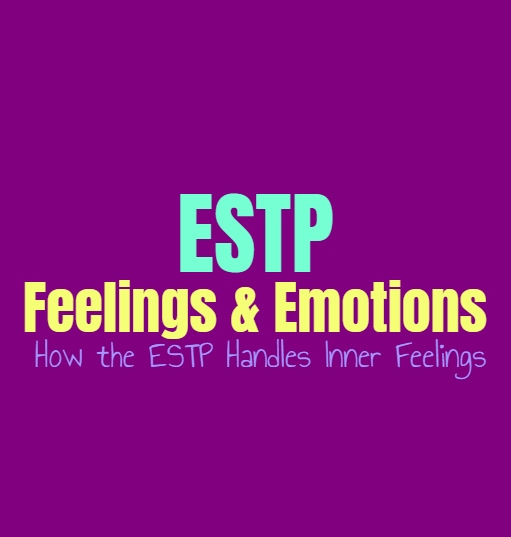ESTP Feelings & Emotions: How the ESTP Handles Inner Feelings
ESTPs are not the most outwardly emotional or expressive people, which can be difficult for their loved ones sometimes. While they might not always gush about their inner emotions, that does not mean ESTPs don’t still feel things deeply. They are complex people with many different layers to their personalities, and their emotions are certainly part of them in ways not everyone gets to see. For the ESTP, it is simply best to avoid expressing too many feelings outwardly since it can cause them to feel misunderstood or even underestimated by those around them.
They Are Compassionate
ESTPs actually have more developed Fe (extraverted feeling) than many people realize. This means the ESTP does connect with the emotions of others on some level, and can often sense these feelings and empathize with them. This is part of what makes the ESTP more charming since they can connect with people and see what they want. Understanding and sensing the desire and feelings of those around them helps the ESTP to be much more approachable and friendly. They might not value emotions as their top priority, but they actually have a firmer grasp on them than most people realize. Because of this, the ESTP does care about the feelings of their loved ones and wants to find ways of making them feel better.
ESTPs might not value emotions as the most important means of making choices, but they don’t neglect them entirely. When it comes to their loved ones, they have a sense of what they are feeling and often want to find ways to improve it. The difference for ESTPs is that when they sense these negative emotions, they often want to find more practical solutions for them. They are problem solvers, so they want to do whatever they must to improve the situation. If someone they love is in pain, the ESTP will likely search for logical and practical means of improving the situation and easing this pain or sadness in their lives. It isn’t that emotions don’t matter to the ESTP. They just don’t like when these feelings can become overwhelming. They might not want to just sit there and listen to someone complain and be sad. Instead, they want to find ways of making them feel better. Some people might just want a person who will sit and listen to them complain or vent, but the ESTPs mind will naturally search for problem-solving methods in these types of situations.
They Value Facts
While ESTPs do experience emotions deeply, they value facts very much. They want to be sure that their choices are logical instead of basing them solely on emotions. For ESTPs, this can be a complicated process since they are also very focused on living in the present. They don’t always follow through with their initial intentions and beliefs since they can get swept up in the present moment. ESTPs just want to experience things and be capable of learning from their surroundings. For them, it is best to dive right in, rather than wait for the answers to become clear.
They do, however, value facts and logical information very much, and because of this, they don’t often appear to care about emotions. ESTPs do care about the feelings of their loved ones. They just prefer to focus on things they can solve and figure out. Emotions can seem a bit hard to get a handle on, and they would rather use their minds and the facts in front of them to make choices. ESTPs want to help their loved ones to improve their lives, and sometimes this means just delivering the cold hard facts of the situation. What most people don’t realize is that this comes from a place of caring for the ESTP. They don’t waste their energy trying to help people they don’t care for, and so solving people’s problems with facts and information shows that they want to help.
They Bury Their Own Feelings
While ESTPs do experience emotions on a deeper and personal level, they have a tendency to bury things inside. ESTPs don’t want to allow these feelings to make them appear weak or too emotional, so sometimes they hide them. They would rather not allow people to see them break down when they are really upset about something, so they try to focus on facts and getting things done in the moment. When the ESTP does show their emotions it might be intentional at times, knowing that this will help them to connect with a person or situation better.
ESTPs are complicated people who live their lives from moment to moment. They live so much in the present that sometimes their initial views or feelings about something can change in seconds. When the ESTP gets swept up in a situation they can go from being very factual and direct to being someone who is rather expressive and compassionate towards others. This can make it hard for people to really know what to expect from the ESTP, especially when it comes to romantic relationships. They often try to focus more on information and being direct, but there are times when emotions come more into play than people expect from the ESTP.
This Post is Brought To You By BetterHelp
